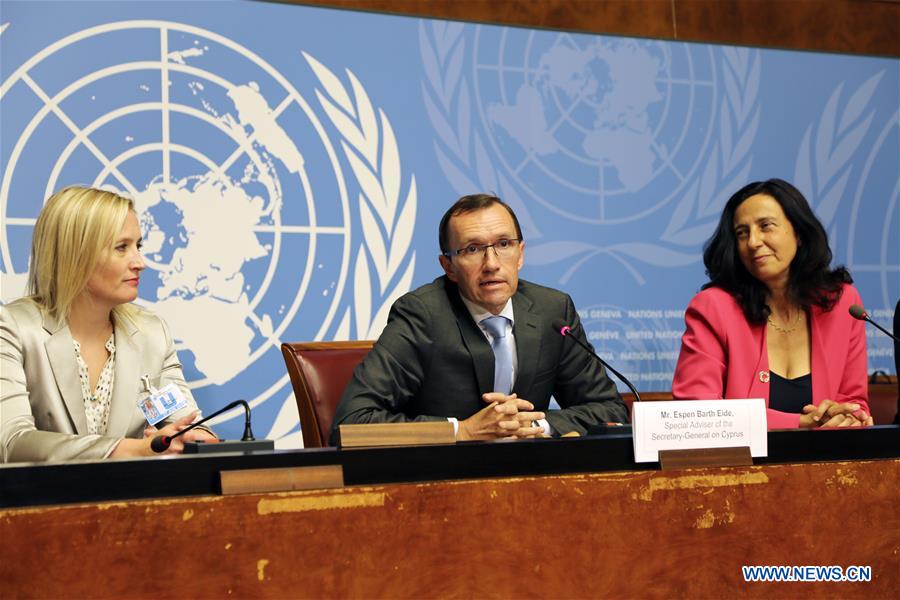
UN Secretary General's Special Adviser on Cyprus Espen Barth Eide (C) addresses a press conference in Geneva, Switzerland, on June 27, 2017. UN Secretary General's Special Adviser on Cyprus Espen Barth Eide on Tuesday called the upcoming new peace negotiations aimed at ending the division of the country a "unique opportunity", saying that "there is an awareness that there is no time like the present." (Xinhua/Shi Jianguo)
GENEVA, June 27 -- UN Secretary General's Special Adviser on Cyprus Espen Barth Eide on Tuesday called the upcoming new peace negotiations aimed at ending the division of the country a "unique opportunity", saying that"there is an awareness that there is no time like the present".
"It's a unique opportunity, because after all of these decades of division, it is possible to solve, and I really hope that this is the spirit by which everybody goes into this meeting," Eide told a press conference on Tuesday here in Geneva.
He added that although there exists a sense of "life goes on" because of relative stability and lack of violence in the island, the problem is that "there is not guarantee that the status quo is permanent."
A new conference on Cyprus is supposed to reconvene in Crans-Montana of Switzerland on Wednesday under the auspices of the United Nations.
According to a UN source, participants of the conference will include Turkish Cypriot leader Mustafa Akinci, Cypriot President Nicos Anastasiades, Eide, as well as top diplomats from Turkey, Greece, Britain and the European Commission.
"We are here to succeed, but hard work will be required and there is no guarantee of success," Eide said, adding that it is not uncommon the sides' starting positions are "diametrically opposed".
"Reiterating one's starting position at the start of the conference is to be expected," he noted.
According to the UN official, although for practical purposes, the planning end date is until July 7, but if necessary, the conference could continue if agreed by all sides.
He told reporters that the talks at Crans-Montana would take place in two separate "tables", one dealing with the issue of security and guarantees, which involve the guarantor countries, and the other tackling bi-communal issues like governance and power-sharing.